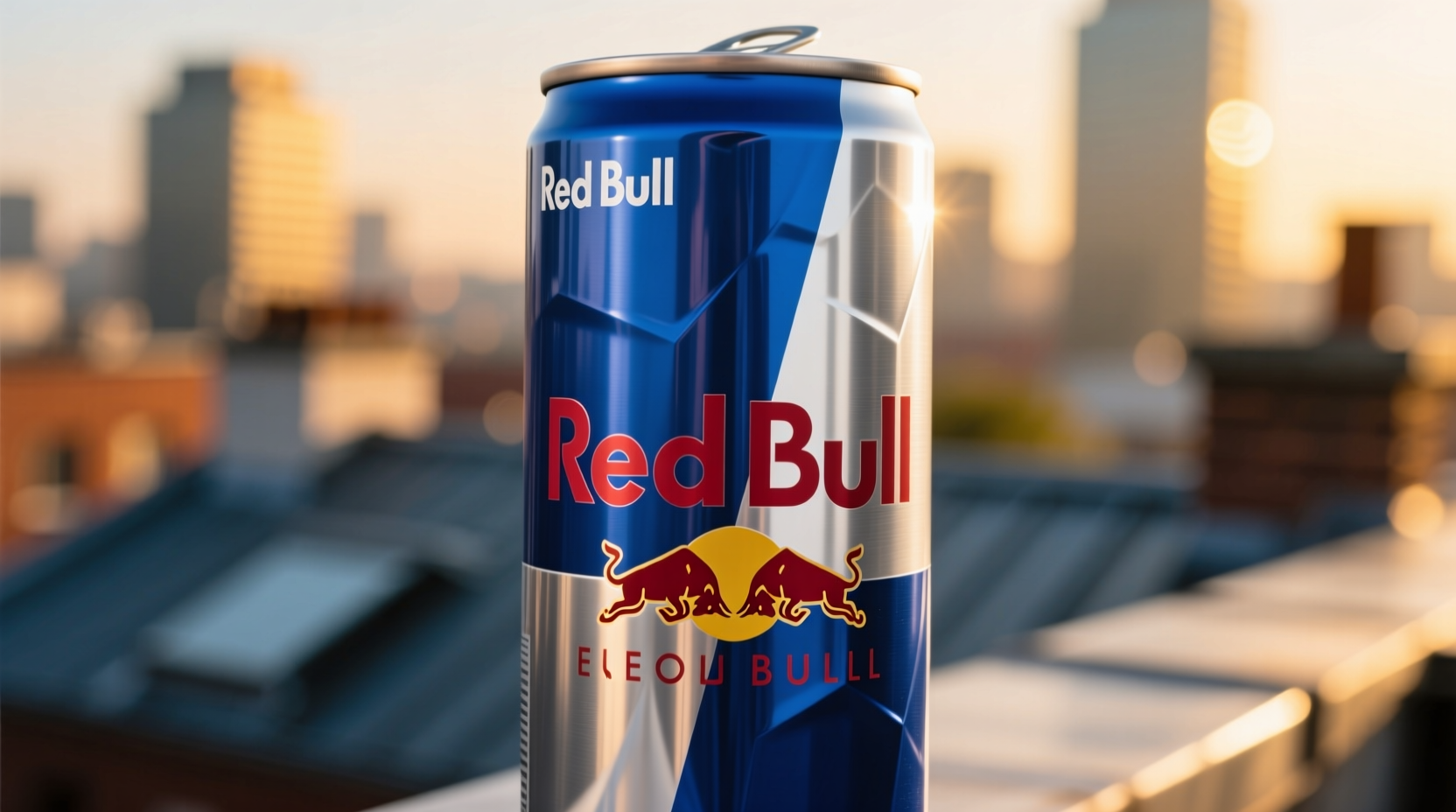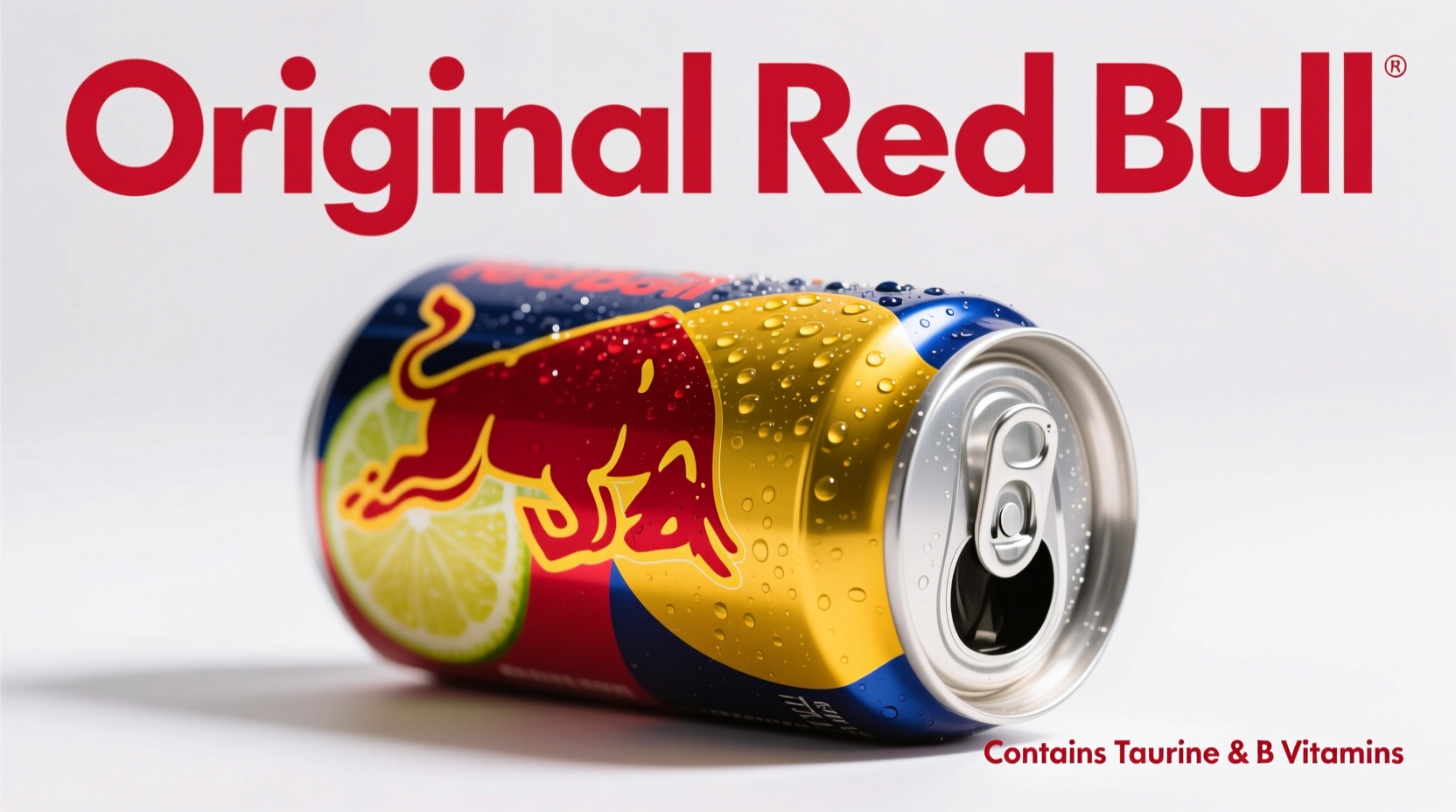Ever wondered what gives Original Red Bull its unmistakable taste that's been fueling people since 1987? You're not alone. Many consumers find themselves curious about the specific flavor profile behind this iconic energy drink that doesn't quite match any single fruit you'd find in nature.
Breaking Down the Original Red Bull Flavor Profile
Original Red Bull's flavor is a carefully crafted balance of several taste elements that work together to create its unique profile. Unlike many energy drinks that clearly taste like specific fruits (such as orange or berry), Original Red Bull has a more complex flavor that's difficult to pin down to one particular fruit.
The primary taste components include:
- Sweet-tart berry notes - reminiscent of wild berries but not specifically raspberry or blueberry
- Citrus undertones - primarily lemon and lime accents that provide brightness
- Subtle herbal hints - from the proprietary blend that gives it depth
- Slight medicinal note - from the B vitamins and taurine that are essential ingredients
This combination creates what many describe as a "tropical berry meets citrus" experience with a clean finish that doesn't leave an overly sweet aftertaste.
| Flavor Component | Primary Source | Contribution to Overall Taste |
|---|---|---|
| Sweet-tart berry | Fruit juice concentrates | Base flavor profile, moderate sweetness with tangy finish |
| Citrus notes | Citric acid and natural flavors | Brightness and refreshing quality |
| Herbal undertones | Proprietary blend | Complexity and depth |
| Slight medicinal hint | B vitamins and taurine | Functional ingredient taste |
Why Original Red Bull Doesn't Taste Like Regular Fruit Drinks
The distinctive flavor of Original Red Bull comes from its unique formulation that prioritizes both taste and functionality. According to the U.S. Food and Drug Administration's guidelines on food labeling, Red Bull must disclose its ingredients while protecting proprietary flavor formulas.
Unlike many fruit-flavored beverages that use prominent single-fruit profiles, Red Bull's creators designed a flavor that:
- Complements the functional ingredients (taurine, B vitamins, caffeine)
- Provides a refreshing quality without being overly sweet
- Creates a distinctive identity that's instantly recognizable
- Works across different consumption occasions (morning, afternoon, evening)
Evolution of the Original Red Bull Flavor
Since its introduction, the core flavor profile has remained remarkably consistent, though minor adjustments have been made to comply with regional regulations and ingredient availability:
- 1987 - Original配方 created in Thailand as Krating Daeng, with a stronger medicinal taste
- 1987-1997 - Formula adapted for European markets with more balanced sweetness
- 1997 - U.S. launch with slightly modified flavor to appeal to American palates
- 2000s - Minor adjustments to sugar content and flavor balance in various markets
- Present - Consistent global flavor profile with regional variations for sugar content
This timeline shows how the flavor has evolved while maintaining its distinctive character that consumers recognize worldwide.

How Perception of Original Red Bull's Flavor Varies
Interestingly, how people perceive Original Red Bull's flavor can differ based on several factors:
- Temperature - Served cold, the sweetness is less pronounced and citrus notes become more apparent
- Consumption context - When tired, the flavor may seem more refreshing; when not fatigued, the medicinal notes might be more noticeable
- Cultural background - In Asian markets, the flavor is often described as more herbal, while Western consumers frequently note the berry-citrus elements
- Expectations - Those expecting a specific fruit flavor may struggle to identify the complex profile
According to sensory research published by the Journal of Food Quality and Preference, this multi-dimensional flavor profile contributes to Red Bull's broad appeal across different demographics.
Common Flavor Misconceptions
Several myths persist about Original Red Bull's flavor:
- Myth: It contains bull sperm or extracts (completely false - this is an urban legend)
- Myth: The flavor comes primarily from caffeine (caffeine itself is nearly flavorless)
- Myth: It tastes the same worldwide (minor regional variations exist due to local regulations)
- Myth: The blue color indicates blueberry flavor (the color is purely for brand recognition)
Understanding these misconceptions helps clarify what actually contributes to Original Red Bull's distinctive taste.
How Original Red Bull Compares to Other Energy Drinks
When placed side-by-side with competitors, Original Red Bull's flavor stands out for its balance:
- vs. Monster Energy - Monster has a stronger citrus-orange profile with more pronounced sweetness
- vs. Rockstar - Rockstar tends to be sweeter with more obvious fruit notes
- vs. Bang Energy - Bang has a cleaner, less sweet profile with more prominent carbonation
- vs. 5-hour Energy - 5-hour is much more concentrated with stronger vitamin notes
This balanced profile has helped Original Red Bull maintain its position as a market leader for decades.
Practical Tips for Enjoying Original Red Bull's Flavor
To best experience Original Red Bull's distinctive flavor:
- Serve chilled but not ice-cold - around 40°F (4°C) brings out the best flavor notes
- Try it straight from the can first to experience the intended flavor profile
- For a refreshing twist, mix with a splash of cranberry or pomegranate juice
- Avoid pairing with strongly flavored foods that might overpower its subtle notes
- If sensitive to the slight medicinal note, try it with a squeeze of fresh lime
Understanding these serving suggestions can help you appreciate the carefully crafted flavor that's made Original Red Bull a global phenomenon.











 浙公网安备
33010002000092号
浙公网安备
33010002000092号 浙B2-20120091-4
浙B2-20120091-4